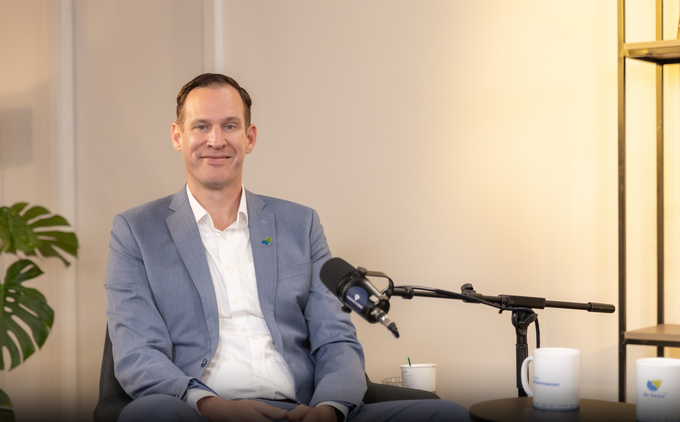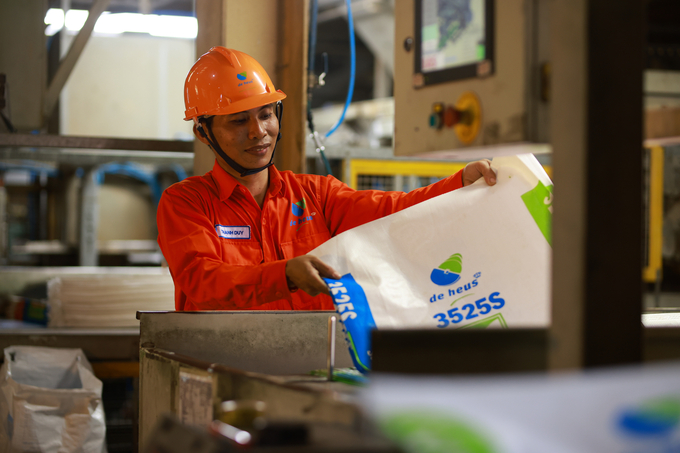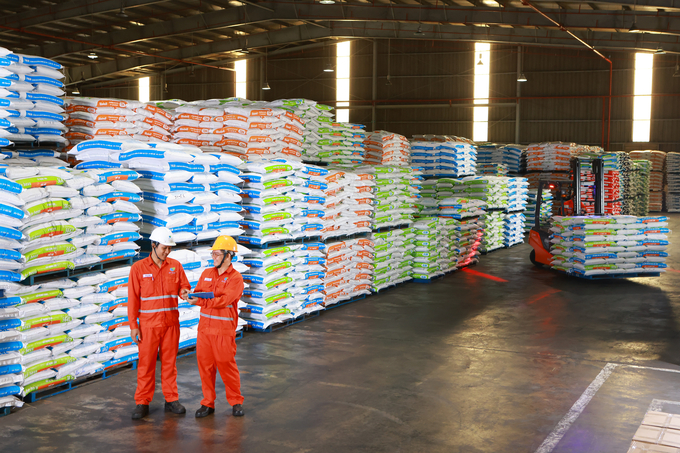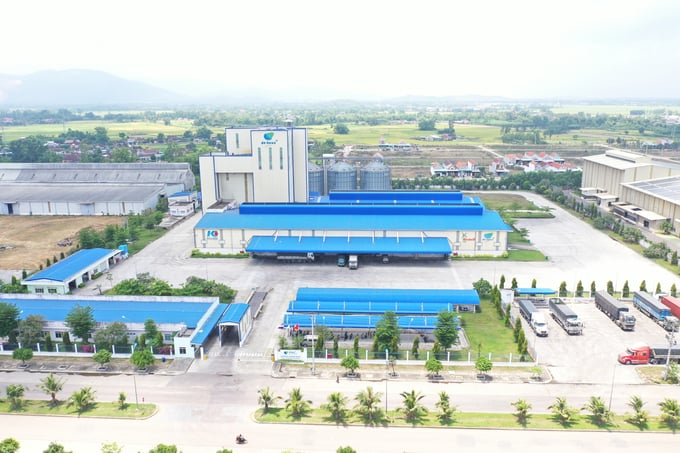November 26, 2025 | 22:25 GMT +7
November 26, 2025 | 22:25 GMT +7
Hotline: 0913.378.918
November 26, 2025 | 22:25 GMT +7
Hotline: 0913.378.918

Gabor Fluit, CEO Asia at De Heus
After fifteen years of stable development in Vietnam, Gabor Fluit noted that the country is currently one of the fastest-growing in Southeast Asia.
After a transition from small-scale, family-based livestock production, local households nationwide have gravitated towards professionalized farming and large-scale operations over time. The innovative spirit of Vietnamese farmers plays a crucial role in driving the sector’s development.
Their proactive pursuit of knowledge and rapid adoption of new technologies, management software, and automation systems has elevated the position of Vietnamese agricultural products in the global market. De Heus is proud to have accompanied Vietnamese farmers throughout the years, sharing technical knowledge and promoting technology applications to support them in this transformation.

De Heus is proud to have accompanied Vietnamese farmers over the last fifteen years.
Throughout its development, Vietnam’s livestock sector has faced substantial and damaging diseases such as African swine fever and avian influenza. Furthermore, Vietnam's livestock sector is highly dependent on international markets and faces substantial costs, as more than 70% of its animal feed ingredients are imported.
In response, De Heus Vietnam has encouraged local governments to promote the cultivation of suitable crops, coordinate with farmers to select seeds, and provide guidance on farming practices to enhance crop yields and increase profitability.
In addition to disease pressures, the threat of saltwater intrusion in the Mekong Delta has posed significant challenges for Vietnam’s livestock sector. With the aim of addressing these issues, De Heus is committed to finding comprehensive solutions to support farmers in overcoming challenges and promoting the sustainable growth of the livestock sector.
As Vietnam’s economy continues to expand, De Heus recognizes its mission to motivate farmers and attract young, dynamic, and creative talent to the agricultural sector.
Facing the need to continually improve its product quality, Gabor Fluit believes that the pressure to innovate is a powerful driver of growth. Consequently, De Heus Vietnam has invested in Research and Development (R&D) Centers to test optimal products tailored to local farming environments and conditions, as well as providing critical support for Vietnamese farmers.

De Heus aims to achieve sustainable growth in business development through the optimization of current resources.
Regarding the company’s direction for animal feed development, Gabor Fluit commented that De Heus aims to achieve sustainable growth by optimizing existing resources to ensure the supply of high-quality, affordable feed for a projected global population of 10 billion by 2050.
On the other hand, De Heus plans to enter new markets in addition to expanding in existing ones, especially in Vietnam, one of the Group’s primary markets worldwide.
De Heus currently produces a diverse range of animal feeds, which encompass compound, concentrated, and specialty feeds. The company is committed to supporting local farmers and promoting the sustainable development of the livestock sector.

De Heus Vietnam owns 17 production plants as well as Asia’s first premix plant.
At present, De Heus Group owns over 80 production facilities across more than 20 countries, with distribution reaching over 75. In Vietnam, De Heus operates 17 production plants as well as the first premix plant in Asia, supported by a wide-reaching national distribution network.
De Heus’ animal feed factories are equipped with modern automation technology. The company also employs international experts for monitoring and operating under ISO 22000 and Global GAP standards.
Sustainability is the key to creating advantages for Vietnam's livestock industry. This is also the way to build a green future for Vietnam's livestock industry. Johan van den Ban, General Director of De Heus Vietnam, remarked: "Nearly fifteen years ago, when De Heus first entered Vietnam, our main customers were distributors of animal feed products and nutritional solutions. They primarily sell these products to small farmers, who only own a few chickens, pigs, or cows."
De Heus is currently operating in the animal feed segment for cattle, poultry, and aquaculture species. Johan noticed two different trends. For aquaculture, De Heus exports the majority of its output, which includes shrimp, shark catfish, and marine fish, to various major markets around the world, such as the US, Europe, Japan, South Korea, etc. Notably, these countries impose strict requirements for food safety and antibiotic residues. As a result, farmers in the aquaculture value chain understand that they must comply with increasingly high standards.
Translated by Nguyen Hai Long

(VAN) The model of making a living under the forest canopy through the agroforestry system in Van Son commune, Bac Ninh province, is expected to generate an annual income of approximately VND 30 million/ha.

(VAN) Many enterprises in Can Tho are harnessing natural energy and reducing greenhouse gas emissions in their production processes, thereby contributing to the promotion of a sustainable green transition.
/2025/11/24/3536-2-112800_176.jpg)
(VAN) Dong Nai now has tens of thousands of hectares of forests certified for sustainable management, and this area will continue to be expanded in the coming period.

(VAN) Vinh Ha hamlet (Dai Xuyen commune, Hanoi) is shifting away from small-scale farming as households adopt bioscurity into their breeder chicken models.

(VAN) Heavy rains make aquatic species more vulnerable to disease. Proactive water management and high-tech systems help farmers prevent outbreaks and protect yields.

(VAN) Greenhouses are shifting production mindsets in Binh Lu commune, enabling farmers to ‘weather the sun and rain’ and secure stable vegetable harvests throughout the year.

(VAN) Green transition is crucial for the Mekong Delta amid climate change and stricter standards, offering a path toward sustainability.